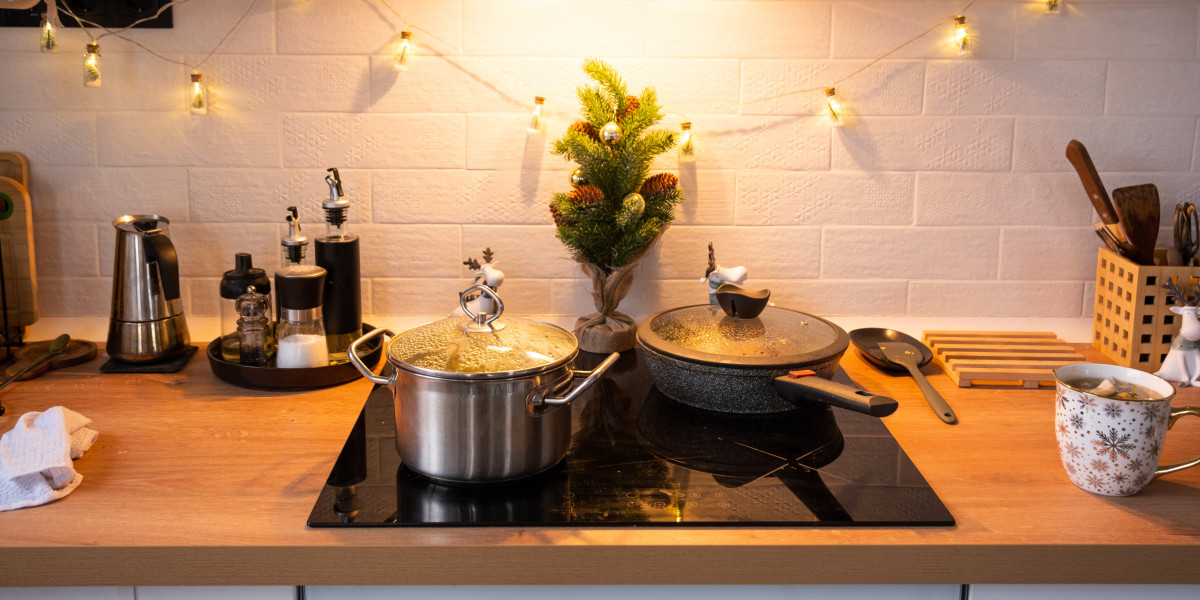
The Integrated Cooker: A Comprehensive Guide to Modern Cooking Solutions
The development of kitchen appliances has actually revolutionized cooking and cooking strategies, making meal preparation more efficient and enjoyable. Amongst these developments, the integrated cooker stands out as a versatile and space-saving addition to modern kitchens. This short article explores the various aspects of integrated cookers, including types, advantages, functions, and a contrast with standard cooking techniques.
What is an Integrated Cooker?
An integrated cooker is a compact cooking appliance that integrates several cooking functions into one unit. Often built into kitchen cabinets, these cookers are developed to save area while boosting kitchen aesthetics. They normally incorporate a variety of functionalities, such as baking, barbecuing, steaming, and even pressure cooking.
Key Features of Integrated Cookers
- Multi-Functionality: Integrated cookers can carry out different cooking jobs, eliminating the requirement for multiple appliances.
- Space-Saving Design: These cookers fit flawlessly into kitchen systems, making them ideal for modern homes with minimal area.
- Advanced Technology: Many integrated cookers come equipped with smart technology, such as programmable settings, touch-screen controls, and connection options.
- Energy Efficiency: Built with modern products and design, they typically take in less energy compared to conventional cooking approaches.
Kinds Of Integrated Cookers
The marketplace provides different kinds of integrated cookers, each with its unique set of features and functionalities. Here are the most typical types:
| Type | Description | Example Use |
|---|---|---|
| Built-in Ovens | Ovens that are fitted into wall systems or kitchen cabinetry | Baking bread, roasting meats |
| Induction Hobs | Cooktops that use electro-magnetic energy to heat pots and pans | Quickly boiling water, sautéing |
| Steam Ovens | Appliances that cook food using steam for much healthier results | Steaming vegetables, fish |
| Microwave Ovens | Integrated microwaves for fast heating and cooking | Reheating leftovers, making popcorn |
| Combination Ovens | A mix of standard and steam cooking technologies | Baking while guaranteeing wetness retention |
Benefits of Using Integrated Cookers
Integrated cookers offer a host of benefits over standard cooking tools. Below are a few of the essential advantages:
- Space Efficiency: Ideal for compact kitchen areas, integrated cookers make use of vertical spaces successfully.
- Structured Cooking Process: With multiple functions readily available, users can shift from one cooking technique to another with minimal effort.
- Enhanced Aesthetics: Many integrated cookers can be found in sleek designs that blend well with contemporary kitchen decor.
- Enhanced Cooking Control: Programmable features permit exact cooking, guaranteeing better meal results.
Integrated Cookers vs. Traditional Cooking Appliances
When considering meal preparation options, it is vital to weigh the advantages of integrated cookers versus conventional cooking appliances. Below is a comparison chart:
| Feature | Integrated Cooker | Traditional Appliances |
|---|---|---|
| Area Efficiency | High | Lower |
| Multi-Functionality | Yes | No (requires multiple appliances) |
| Energy Consumption | Typically lower | Can be greater |
| Cooking Speed | Faster (particularly with induction) | Varies |
| Style | Modern and sleek | Varies widely |
The integrated Intergrated cooker is a forward-thinking home appliance that fulfills the needs these days's fast-paced lifestyle. Its multiplicity of functions, space-saving design, and streamlined aesthetics make it a rewarding investment for any modern kitchen.
For those wanting to save time, area, and effort in meal preparation, integrated cookers offer an outstanding option that enhances the cooking experience while providing tasty, well-prepared meals.
Frequently Asked Questions (FAQs)
1. What is the typical rate of an integrated cooker?
The cost of integrated cookers can vary extensively, usually varying from ₤ 500 to ₤ 3,000 depending on functions, brand name, and size.
2. How much upkeep do integrated cookers require?
Upkeep typically consists of routine cleansing of surfaces and looking for any software application updates if they feature smart technology. It's advisable to follow the maker's standards.
3. Can I change my existing oven with an integrated cooker?
Yes, integrated cookers can typically change conventional ovens, however it is vital to seek advice from an expert to ensure compatibility with your kitchen layout.
4. Are integrated cookers tough to install?
Setup can be simple for those with DIY experience. However, employing a qualified service technician is advised to guarantee correct setup.

5. Who benefits most from utilizing an integrated cooker?
Households, time-pressed individuals, and those residing in compact homes particularly take advantage of the multi-functionality and space-saving style of integrated cookers.
In this age of benefit and efficiency, integrated cookers are redefining how we approach food preparation. Whether you are a skilled chef or a cooking beginner, incorporating this effective home appliance into your kitchen can significantly improve your cooking experience.








